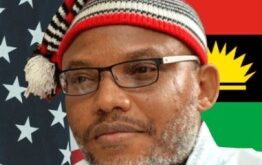By Young Erhiurhoro
The subject of land and boundary disputes and their causes in the Niger Delta is very timely, but also very sensitive especially for those of us who are not trained and certified legal practitioners and thus not competent to handle these matters in the courts of law. As laymen, we may be verse in land and property law, but not as knowledgeable as those that studied the course in school to do justice and prosecute such matters in a legal process.
Based on the above facts, I will therefore present my thoughts and views on the above subject from the perspective of a layman and as a public affairs analyst. No doubt, land and boundary disputes is a common problem in the entire country, but more rampant and worrisome in the Niger-Delta region. This has caused so many inter communal crises especially between two or more communities sharing common boundaries in every part of the region. It has caused ripples of pains, agonies and undried tears in the hearts and faces of so many people. Its victims are uncountable.
In fact, in Delta state alone, land and boundary disputes have sunk and continue to sink so many communities without solutions. For instance, in the early 90s, Warri was a war zone as a result of ownership rights over lands and other properties in the city amongst the Urhobos, Itsekiris and the Ijaws. Each of these ethnic groups wants to claim Warri as its own community. This was the root cause of the Warri crises. This crisis, no doubt destroyed so many businesses, properties and killed thousands of people. Even till today, the negative effects of that Warri crisis is still telling hard on the residents and people of the city. The crisis has broken the once cordial and peaceful relationship amongst these three ethnic groups. At the moment, they are always at longer heads and they see themselves as enemies.
Again, few years ago, Enhwe and Igbide, both in Isoko North LGA of Delta state were engulfed in a communal clash where thousands of their youths were murdered, houses razed down and many families ravaged and ransacked. What actually led to the crisis according to reports they gave was as result of boundary dispute between the two Isoko communities. Till today, that crisis is reoccurring. There is no peaceful co-existence between the two communities for now. They may deceived the state government that the crisis has ended by signing a peace accord. Yet at a very little provocation from either parties, it can trigger off the crisis again. This is just the situation in those two communities for now.
Few weeks ago, the media was littered with the news of how Okuama community in Ughelli South LGA killed Army personnel that went to the community on a peace mission. On retaliatory attacks, the Army razed down the entire community and therefore turned the place into a desert. First, why did the Army go on a peace mission to the community? It was as a result of boundary and land disputes between Okuama and Okoloba communities. These two communities are situated along the River Niger and they shared common boundaries. Today, peace have eluded the two communities and they now see themselves as enemies.
In fact, there are many of such inter communal crises in every part of Delta state. No part of the state is free or exempted from this modern day slavery. I also believe that, the story is the same in other states in the Niger-Delta region. There were countless reports in the media of how two or more communities were engulfed in crisis in Bayelsa, Rivers, Cross River and Anambra states. All these crises were as a result of boundary and land disputes. Nothing more!
However, my major point of concern in this issue is the nonchalant attitude of community leaders over land and boundary disputes and how to resolve such issues amicably and peacefully without indulging in violence. Our community leaders must understand that land is immovable property and lasts for a very long time without wearing away. Many of these community leaders were born to meet all these lands that are being disputed in one way or the other. In the same way, these said leaders will die and leave these same lands without taking any part or parcel of it along. In fact, once they die, they would be buried in the same land that we are fighting for. This is why leaders have to be very sensitive and wise when handling any land matters.
Whenever there is land or boundary disputes between two communities, without even a third party coming into the issue, the two communities can resolve the issue amicably if they apply wisdom, knowing fully well that anybody that loses his/her life during such imbroglio, that life can’t be replaced or brought back to life again. The number of deaths recorded on one side won’t change the ownership rights or process of inheritance and then make the disputed land belong to the community with higher victims. Our community leaders should always consider the value and importance of life whenever such issues of land and boundary disputes come for discussion.
Again, to put an end to these everyday communal clashes because of this land and boundary disputes in the Niger-Delta region, all the states in the entire Niger-Delta region must take proactive steps to nip this reoccurring problem in the bud once and for all. First, whenever such issues of land and boundary disputes are reported to the government, the state government without waiting till when the issue is escalated, should immediately step into the matter and if possible should declare such a land a government reserved land. Both communities should be bound from trespassing the land.
However, in this case, lawyers may come in to challenge the state government of not having such powers or rights to take over a community land without following the legal process. They may like to quote laws and acts of the federal constitution or those under the state that never grant such powers to the state government. In order to avoid this unnecessary legal battle, the state government through the state legislature should make such laws or acts now to abrogate powers to the executive arm of the state government to declare any land in dispute between two communities as government reserved land to avoid this uncontrollable communal crises.
Secondly, community leaders should avoid oppression when handling the issues of land and boundary disputes. We have observed in most times that community leaders that are connected to government and higher seat of power usually use such privileges and opportunities to oppress poor communities. This usually occur in communities that have great politicians and other government officials holding higher positions. Such community leaders know very well that the land in question doesn’t belong to them in any way. But they may like to use such power and connection to lobby the government in order to claim the land as theirs. This has happened in so many communities. If truly we need peace in the entire Niger-Delta region, then community leaders must allow fairness and justice to prevail in land matters.
Conclusively, our youths should be wise in issues of land and boundary disputes. Whenever such issues come up in our various communities, the youths are always the primary target of every attack. The leaders in this case would always like to push the youths into unplanned battle and get them killed. Yet, in some cases, the leaders would always stationed their children and family members in other safe places. This is how foolish most of our youths are! With a little financial inducements from our leaders, they are ready to die or to kill at the slightest provocation.
Therefore, our youths should be wise when playing this dangerous game. We referred to the youths as leaders of tomorrow and by generational programming, we are right for saying so. But the ugly part of it is that, the same leaders of tomorrow are being lured by our present leaders into death, preparing the leadership as inheritance for their own children. Let our youths be wise now!
Young Erhiurhoro;Kjc is a reporter and a member of the Urhobo Historical Society.
 PH Mundial – Port Harcourt Online Newspaper News Across The Region
PH Mundial – Port Harcourt Online Newspaper News Across The Region





